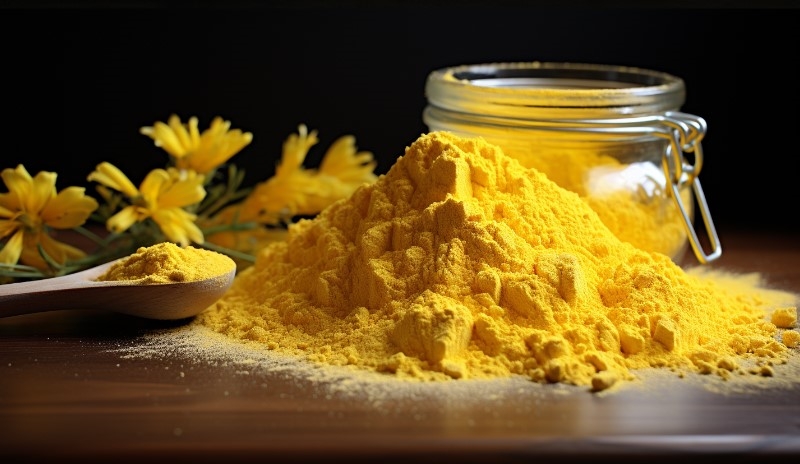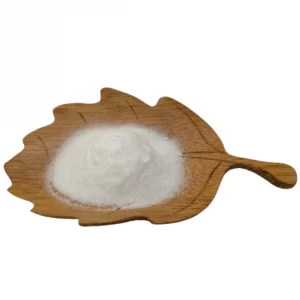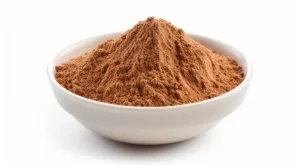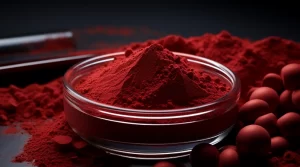Welchen Nutzen hat das Fisetin für das Gehirn?

There are a wide variety of natural compounds that can affect brain health because, after all, the brain is the most active tissue in the body.
One of nature’s most exciting compounds is flavonoids, a class of compounds known as “nature’s biological response modifiers.” These compounds are also responsible for the bright colors of many fruits, flowers and other plants. They are vital to the health of plants, and they are also vital to the health of humans.
More than 8,000 flavonoid species have been identified. Although they share many basic functions, such as strengthening antioxidant mechanisms, fighting aging and cell degeneration, and benefiting the cardiovascular system, different flavonoids have slightly different effects in the human body.
Was ist Fisetin?
Fisetin is one of the most studied flavonoids. Theoretically, fisetin is a flavonol molecule similar to the flavonols found in dark chocolate and cocoa. Trace amounts of fisetin can also be found in certain fruits and vegetables.
Based on existing research, the highest levels of fisetin are found in strawberries, followed by apples. The content of fisetin in strawberries is about five times that in apples, and is generally more than 30 times that in mangoes, kiwis, grapes, tomatoes, onions, cucumbers and various nuts.
However, the fisetin content in these foods is still not comparable to the fisetin content in dietary supplements. In Japan, the estimated average daily intake of fisetin is 0.4 mg. As a dietary supplement, the recommended daily dose of fisetin is 100 mg.
Fisetin health benefits
Like other flavonoid sources such as quercetin, resveratrol, and grape seed extract, fisetin exerts a myriad of beneficial effects. The focus of this article is primarily on fisetin’s unique effects on brain health, cognition, and memory.
Fisetin optimizes brain health by
• Activates antioxidant mechanisms to protect brain cells from damage.
• Enhance glutathione content in brain cells to further protect the brain while optimizing body cleansing and enhancing cellular energy.
• Supports the growth of new brain cells.
• Stimulates and assists brain circuits and brain signaling pathways involved in long-term memory function.
Much of the research on fisetin on brain health has been conducted at the renowned Salk Institute for Biological Studies in San Diego, focusing on fisetin as a “nootropic” and “neurotrophic” factors” to study. The so-called “nootropic substances” refer to substances that can enhance memory and brain function. Several other natural compounds that exert this effect include Hericium erinaceus extract, PQQ and CoQ10, resveratrol, and curcumin.
What makes fisetin unique is its role as a neurotrophic factor. This class of compounds supports the survival, differentiation and functional maintenance of brain cells. In other words, what’s different about fisetin is that, in addition to helping brain cells function better, as a neurotrophic agent, fisetin also plays a role in optimizing what’s called “brain plasticity.”
Brain plasticity refers to the brain’s ability to respond to developing new or restoring original brain circuits. Brain plasticity is important for normal brain functioning such as learning and memory. Therefore, by acting as a neurotrophic agent to optimize brain plasticity, fisetin can literally produce optimization of brain circuits and brain signaling pathways associated with long-term memory function.
Of all the flavonoids tested in animal models of age-related brain changes, only fisetin and a related trace flavonol proved to be superior.
How does Fisetin work?
Fisetin crosses the blood-brain barrier through a very complex set of mechanisms to produce its effects as a nootropic and neurotrophic agent. While fisetin works a little differently than other compounds, it does operate in many of the same ways as other flavonoids. For example, fisetin shares some anti-aging properties with resveratrol. It is a potent anti-aging agent, meaning it helps the body and brain get rid of old cells, creating a “pruning” effect that allows healthy cells to flourish or replace old cells. Fisetin is approximately twice as effective as quercetin in this capacity.
Like other flavonoids, fisetin also enhances the production of glutathione, a key antioxidant and detoxifying agent in our cells. Optimizing glutathione levels in the brain produces various benefits, as the brain is better able to protect itself from damage and has higher cellular energy levels.
One of the key roles of fisetin is to initiate the so-called ERK pathway. ERK stands for “extracellular signal-regulated kinase,” extracellular meaning at the periphery of the cell, and kinases referring to a class of enzymes. So ERK means when substances outside the cell send a signal to the inside of the cell to activate the kinase.
Fisetin helps brain cells produce proteins that are critical to brain cell structure and function, particularly at the communication nodes between cells called synapses. It also reduces various inflammatory reactions within synaptic connections.
By activating the ERK pathway, fisetin can optimize brain cell structure and function. This means it can help optimize cognition and memory. This effect has been repeatedly demonstrated in preclinical studies.
What is the recommended dosage of fisetin?
There are only two human studies on fisetin, and both used a daily dose of 100 mg. 5,6 This dose is calculated based on extensive animal data showing efficacy and safety, and is also a calculated human dose based on U.S. Food and Drug Administration guidelines.
() ()


